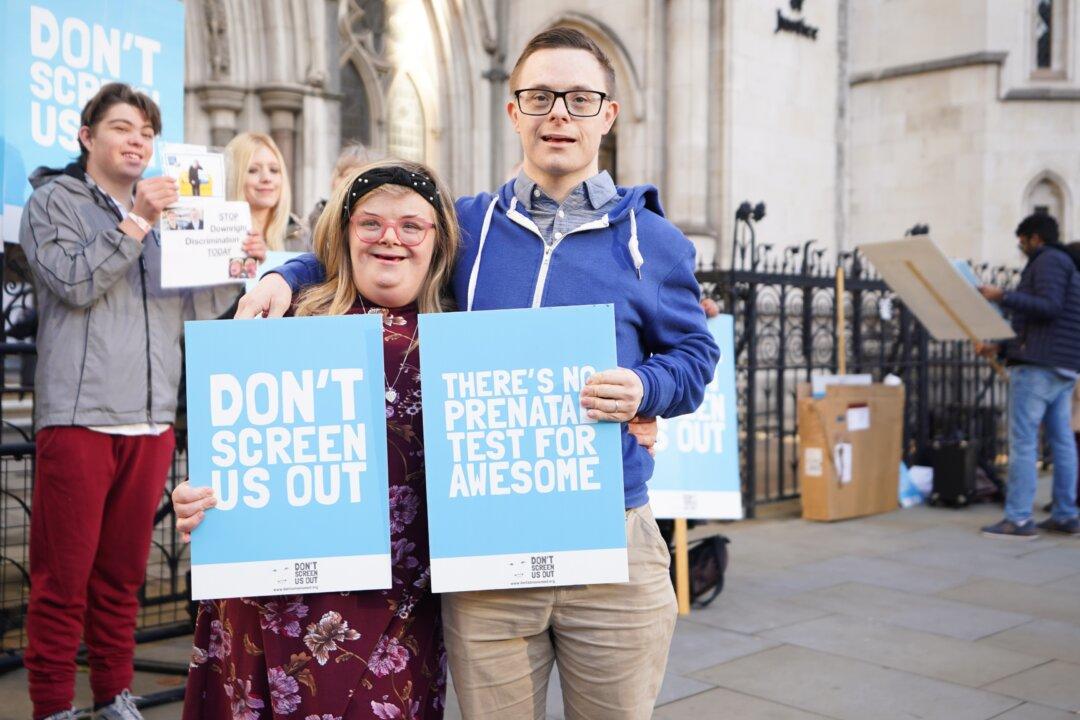An English woman and a child with Down’s syndrome on Friday lost an appeal challenging Britain’s abortion law that allows babies with the syndrome to be aborted up until birth.
Three judges at the Court of Appeal dismissed the appeal, saying the abortion law does not interfere with the rights of the living disabled.





